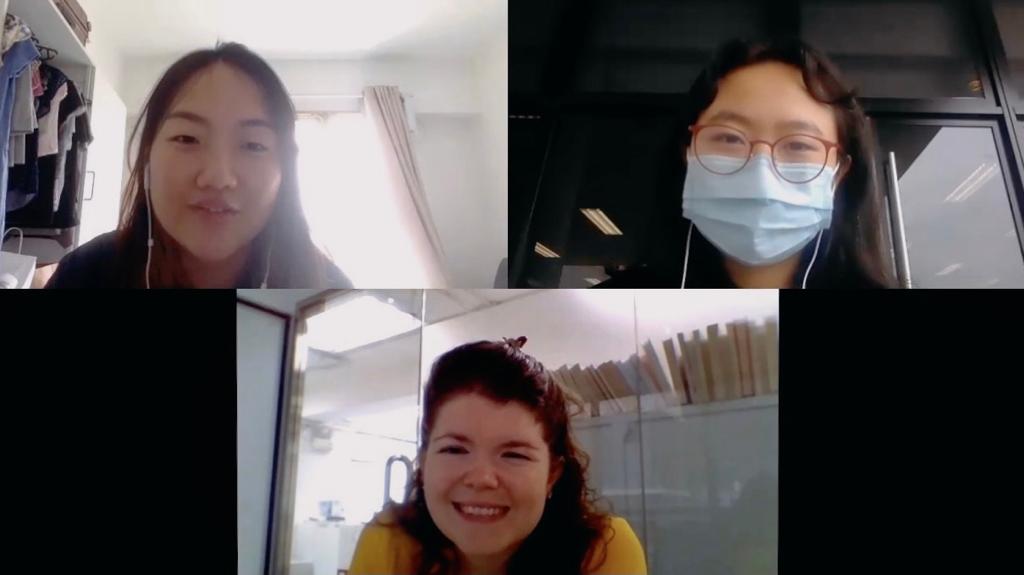Breaking the taboo - Learning from The Women's Foundation’s fight against sexual assault
A few weeks ago we had the honor of interviewing Lisa Moore, the director of research and advocacy of The Women's Foundation, a non-profit organization dedicated to improving the lives of women and girls in Hong Kong. She shared with us insights she gained over the 10 years within the organization and especially their #MakePeopleCount campaign.

Joining The Women's Foundation
Lisa joined The Women's Foundation in search of community based and locally tailored solutions towards social issues she’s passionate about. She wanted to bridge the gap between the great research in universities and actions on the community level. The Women's Foundation utilizes the Beijing Platform for Action in advocacy, the most progressive blueprint for a gender equitable society. They conduct groundbreaking research, run programs and initiatives that challenge gender stereotypes such as promoting STEM education, empowering underprivileged women and their families and advancing women leaders.
“You can’t have equal policies unless you have equal numbers of women and men at the highest level of decision making”
During COVID-19, their work has shifted to focus on gender specific impacts from the pandemic such as domestic violence and the disproportionate caregiving and household responsibilities that women face.

The #MakePeopleCount campaign
“Sexual Violence is very prevalent in Hong Kong, but many don’t talk about it enough.”
Right after the #metoo movement, many women have started sharing their experiences, yet many were faced with backlash. At The Women’s Foundation, they wanted to dispel these myths and raise awareness on how common this occurrence is.
“What’s important for us is why people don’t feel supported enough to speak out - and how we
can create a supportive environment for them. Sometimes they’re afraid of social stigma,
sometimes they don’t have the knowledge or resources, sometimes blame is shifted to the
victims, focusing on what they were wearing or where they were at the time of the assault, which shouldn’t be relevant to what happened.”
To create this supporting environment, the campaign started by producing a video that looked into the everyday lives of women in Hong Kong, raising awareness about how sexual assault is happening to real people around us. With educational materials, resources for those seeking help, along with recommended actions for different organizations, it looked into sexual assault situations and the legal definition and gaps of sexual assault.
“How can we as individuals, as employers and as a community come together to support victims?”
Since the campaign, many became more aware of the situation and the support available. While they’ve been met with some pushback from the general community, Lisa views it as an important opportunity to engage with those who previously misunderstood this issue. The Foundation has also been engaging with the government, who are considering nearly 70 updates to the sexual offences law, proposed by the Hong Kong Law Reform Commission after a series of public consultations.
“ We're urging the Government to bring these critical reforms into law which include the definition of consent, what constitutes rape, broader protections for sexual minorities, among many others.”
Fighting against sexual violence continues to be a top priority for The Women’s Foundation. Going forward, they will continue to hold events on raising awareness on sexual violence and will explore different options - whether that be research, programs or related campaigns - where they can best contribute on this issue.
How can we take this into our university lives?
As individuals, Lisa reminds us to educate ourselves on the situation - from legal definitions to where to seek support, this enables us to have open conversations, listen and support victims coming forward.
“If you witness any kind of sexual harassment or assault, in public transport or on campus, call out these circumstances and do a check-in with those involved.”
By intervening and stopping these situations, we’re able to create a culture where harassment will not be tolerated. We’re able to change a community where sexual harassment and assault cases often go unreported, or worse, ignored. By doing this, you’re able to encourage victims to speak out and receive the support they need. During COVID-19, Lisa reminds us of how cyber sexual assault has become more common and could equally be as emotionally damaging, encouraging us to extend our support to online and online behaviors.
On the school administration level, it’s crucial that victims won’t have any consequences to speak up, a third party channel where victims can feel safe and respected. Other than regular training and education on policies, staff should have the support to manage a conversation with students who come forward and open up about the issue, building trust and openness on this subject.
“Have open conversations and encourage senior representatives to join these efforts, showing how preventing sexual assault and harassment is integral to the school.”
--
Sexual assault is not something that can be solved overnight. As we ourselves become more aware and educated about this issue, we’re able to push for change in organizations and communities, building a safer and more supportive environment to fight against sexual violence.




